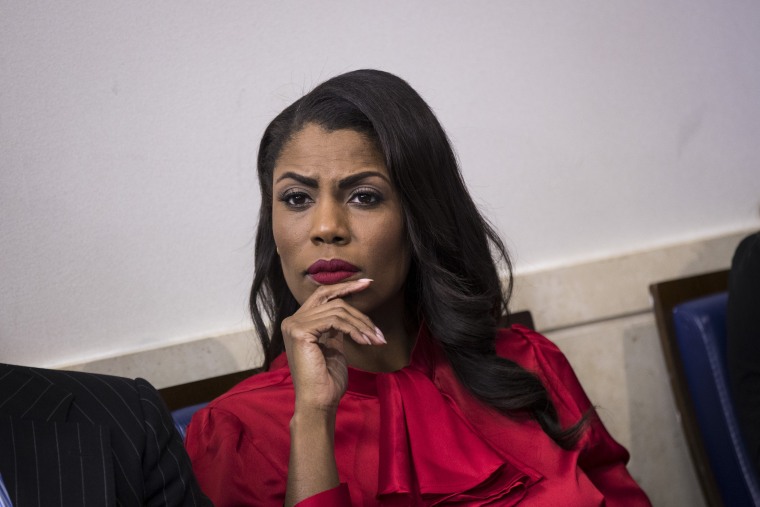I'll confess to having mixed feelings about Omarosa Manigault Newman, her upcoming book, and the inherent news value of her purported experiences in Donald Trump's White House.
On the one hand, a former high-ranking official on the president's team is offering first-hand accounts of developments in the West Wing, while presenting rather aggressive criticisms of her former boss. Practically by definition, this seems newsworthy. On the other hand, at its core, this story is about the perspectives of two dubious reality-show personalities, neither of whom I find credible.
Trump and his allies have been quick to scoff at Newman's latest claims, questioning her motives and trustworthiness. And while that may seem like a reasonable position, it leads to a fairly obvious follow-up question: if she's such an unreliable joke, why did the president give her a lucrative and powerful position in the White House?
Perhaps it's best to focus on the elements of the story that are both substantive and verifiable. It's of legitimate interest, for example, if Trump World routinely uses hush money. The Washington Post reported over the weekend:
The Post's Josh Dawsey has a document verifying Manigault Newman's claim that she was offered what amounted to $15,000 per month in hush money to keep quiet about the White House. It was technically for a job with the Trump campaign, but it was premised on her signing a nondisclosure agreement that dealt with her time in the West Wing. That, notably, isn't generally how NDAs work; they usually involve the job you are getting, not the one you previously had.
The article quoted Larry Noble, a campaign-finance lawyer and former general counsel at the Federal Election Commission, saying, "As a policy and ethics matter, this is very disturbing. If the White House is using NDAs to prohibit government employees from talking about their experiences, it potentially deprives the public from access to otherwise non-secret, non-privileged, information about the operation of the government. Such a practice would also raise serious questions about whether it was intended to prevent the disclosure of potentially illegal activity."
A separate Post report added, "Manigault Newman does not offer evidence for some of her most explosive charges but extensively recorded her conversations in the White House. The Post has listened to several of the recordings made by Manigault Newman, which match quotations recounted in the book excerpts."
I care less about what Newman claims and more about what she can prove. The existence of the tapes opens up a meaningful line of inquiry. (While White House officials make the case that Manigault Newman's claims are untrue, they're also "looking into legal options to stop her from releasing more tapes.")
One apparent audio recording from the Situation Room is already causing a stir.
Newman also provided "Meet the Press" with an audio recording she said was made in 2017 when White House chief of staff John Kelly fired her. In it, Kelly argued that there have been "significant integrity issues" that prompted him to fire her. She claimed the recording was made when Kelly took her into the Situation Room, a specially secure room where the president and his top aides address major national security crises, and where personal cell phones are not allowed. Newman also said it was the only meeting she had with Kelly during her time at the White House.
Putting aside the question of why Kelly brought her to a Sensitive Compartmented Information Facility (SCIF) in order to fire her, there's a more alarming point to consider: if the recording was made in the Situation Room, it points to a very unusual breach and a possible security risk. It also raises questions about who else may have recordings of private deliberations in the Situation Room.
As for what Kelly said during the chat, if there were "significant integrity issues" with Omarosa Manigault Newman's work, it leads us back to the question of why Trump World was prepared to pay her $15,000 a month in the wake of her parting ways with the White House.
